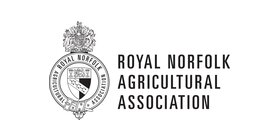
Jamie Lockhart
I grew up in Norfolk and have been involved in farm management since graduating from Shuttleworth Agricultural college in 1995.
In January 2021 I took on the role of Managing Director at Frederick Hiam Ltd.
We grow a significant area of Onions, Parsnips and Potatoes.
The sector faces many challenges and labour availability is one of the biggest.
As a business we are looking at ways we can add automation and technology to reduce our reliance on seasonal labour.
We are taking crop from seed to retail sale and there are many opportunities to streamline what we currently do.
I am married to my wife Becky and we have two children Sam and Katie who are 17 and 15. They are all keen on horses and we spend many weekends throughout the year travelling to various competitions across the country. I am currently the vice Chairman on Norfolk NFU and will take on the Chairs role in early 2021. This allows me to get involved with the wider issues facing our industry. In my spare time in enjoy rugby, shooting and spending time with my friends and family.
I would like to thank the Royal Norfolk Agricultural Association for their generous sponsorship of this award. I would also like to thank my Employer and the team at Frederick Hiam. Without their support I would not be able to complete this study.
End to end automation of field scale vegetable production, incorporating data driven solutions.
The Royal Norfolk Agricultural Association

Study Overview
We are working with a global company to develop the world’s first fully automated parsnip trimming line. The technology will reduce head count in the factory by 20 people with the potential saving on labour in excess of £500k per year.
We will be helping to develop the first prototype trimmer on our site, and I think coupling this with my Nuffield studies will produce an interesting and relevant report as well as using the limited time available to work on something that has direct benefit to this business.
Areas I wish to include in my study are as follows:
- In field automation and robotics to assist the growing of root vegetables
- Washing, grading, and trimming automation on first stage processing.
- End of line automation to assist with crop handling and packing
- The use of ERP systems to improve traceability and packhouse performance
- Harnessing data from all the above to ensure best value and results (this ties the new title back to my original, which is still very relevant to me)
At this early stage my intention is to travel in Europe in late spring to include visits to the Netherlands and the Czech Republic and then hopefully to New Zealand to visit the Headquarters of the company we are working with on this project to explore other opportunities.
I would also plan to visit Denmark were the Robotti company has developed a commercial field scale working robotic system. There are also many businesses in the UK I would plan to visit.